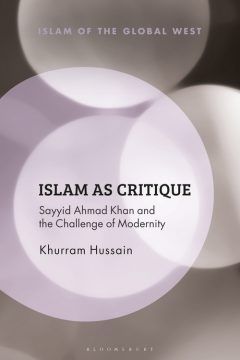Omar Farahat at Brill:
 Khurram Hussain’s Islam as Critique: Sayyid Ahmad Khan and the Challenge of Modernity is an important and highly original book. At one level, the book is a fresh reading of some of Sayyid Aḥmad Khān’s (d. 1898) most profound intellectual contributions. At another, more important (at least for this reader) level, the book is an elaborate set of reflections on the place of Islam in the West and the place of (the study of) Islamic thought in modernity. The book’s offerings are daring and original, and the style is engaging. There are, inevitably, given the ambition of the project’s claims and the size of the book, areas in which one wishes the book offered a fuller discussion. Similarly, given the bold and very timely nature of the arguments, there are many venues that call for engagement to which we can and should respond. Thus, the book is obvious interest to scholars of South Asian Islam, Islamic thought, and broadly anyone concerned with the crises of modernity and alternative ways of being in the world, which, ideally, should be everyone.
Khurram Hussain’s Islam as Critique: Sayyid Ahmad Khan and the Challenge of Modernity is an important and highly original book. At one level, the book is a fresh reading of some of Sayyid Aḥmad Khān’s (d. 1898) most profound intellectual contributions. At another, more important (at least for this reader) level, the book is an elaborate set of reflections on the place of Islam in the West and the place of (the study of) Islamic thought in modernity. The book’s offerings are daring and original, and the style is engaging. There are, inevitably, given the ambition of the project’s claims and the size of the book, areas in which one wishes the book offered a fuller discussion. Similarly, given the bold and very timely nature of the arguments, there are many venues that call for engagement to which we can and should respond. Thus, the book is obvious interest to scholars of South Asian Islam, Islamic thought, and broadly anyone concerned with the crises of modernity and alternative ways of being in the world, which, ideally, should be everyone.
The book advances two primary sets of claims. The first pertains the properly contextualized reading of Khān’s thought as a response to the loss of Muslim sovereignty and identity in the subcontinent following the disastrous events of the mid-nineteenth century. Focusing on one major philosophical question after another, Hussain consistently shows that Khān’s project was an effort to piece together a coherent and viable identity and way of being in the world that systematically eschewed radical or idealized reactions.
More here.
